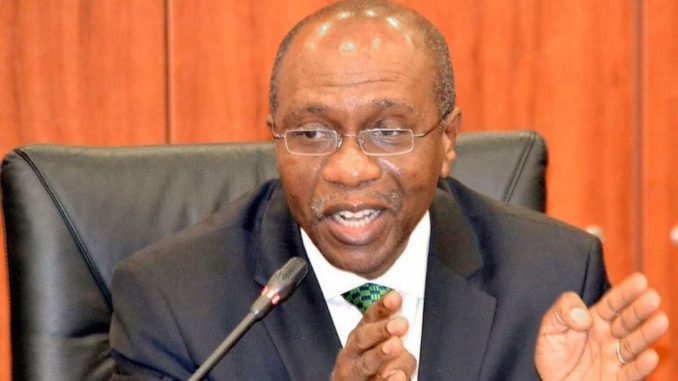
JUST how lax the Central Bank of Nigeria has been in enforcing its writ emerged from its Monetary Policy Committee that recently expressed grave concern over the N8.1 trillion delinquent loans in the banking system. The committee directed the regulator to develop an actionable plan to quickly recover bad loans and tighten credit rules. Had the regulators been stricter in policing the deposit money banks all along, alarmingly high credit defaults would not have arisen so soon after the last financial sector crisis of 2009/10. Stopping the trend and preventing systemic distress should be a key priority of the regulator going forward.
The MPC, which is chaired by the Governor of the CBN, Godwin Emefiele, canvassed just that: it called for a comprehensive administrative, legal and regulatory framework “to speed up the recovery of toxic loan facilities in the banking system.” It wants the CBN to engage relevant stakeholders “in order to mitigate credit risk and ultimately open up the credit delivery space” in the economy. This is long overdue. While the CBN dithered, the banks have been brazenly violating stipulated lending thresholds, anti-money laundering rules and others.
The N8.17tn in Non-Performing Loans on the DMBs books in 2018, by the National Bureau of Statistics figures, was actually a decrease of N1.38tn or 14.46 per cent from the 2017 figure of N9.54tn in NPLs. Figures from the Nigeria Deposit Insurance Corporation show that NPLs rose sharply by 50 per cent between 2016 and 2017. The corporation has been complaining of the worrisome lending by banks above the ratios stipulated in CBN’s Prudential Guidelines that forbids banks from having more than five per cent of total loans as bad. While the NDIC said that by December 31, 2016, 19.91 per cent of the loan portfolio of 20 banks examined was non-performing, the CBN’s Financial Stability Report 2017 showed that the ratio of NPLs net of provision to capital for the banking industry, rose to 38.4 per cent in 2016 from 28.4 per cent in 2015.
Emefiele admits the problem, saying however that there had been an improvement in the NPL-to-deposit ratio from close to 15 per cent “a year or two ago” to 10 per cent today. He said the CBN would work to see that bad loans were brought down and the banks encouraged to lend aggressively to boost economic activities. But the problem deserves greater urgency and a more aggressive response. Certainly, the banks need closer marking than the Emefiele-led CBN has been providing these past five years.
Nigeria’s financial system has undergone systemic shocks in the past, the most recent being the crisis of 2009/10 to which regulators responded with cash injections and takeover of eight banks. The CBN followed up with stiffer risk management rules, just as laws and regulations to control money laundering were tightened. Bigger banks, innovation and new technology tools have challenged financial sector oversight agencies around the world, demanding they become even more innovative and nimbler to police financial institutions which tend to bend the rules if they can get away with doing so. The celebrated investor, Warren Buffet, described today’s innovative financial tools, if unchecked, as “financial weapons of mass destruction.” But innovation, says the European Central Bank, drives progress and effective regulation enhances the stability of the banking sector.
Emefiele is perceived as weak in dealing with malpractices in the sector. While his immediate predecessor was very hard on insider abuse, removing several directors and CEOs, even prosecuting some, only a few, such as the sacked Skye Bank Plc directors, have been given the treatment under this dispensation, despite the multiple revelations of collusion by bank executives with public office holders and brazen violation of extant money laundering regulations. Corruption is rife within the industry and should be stamped out through greater vigilance and tough sanctions. In June 2018, Brazilian regulators imposed $11.6 million on Royal Bank of Canada and Morgan Stanley for forex manipulation. In January this year, Britain’s Standard Chartered Bank was hit with a $40 million-fine by the United States authorities for similar malpractices.
The CBN’s is not a case of absence of laws; it is lack of the will to rigidly enforce the strong laws and regulations in place. This should change to protect the financial system in an economy that only recently climbed out of recession and is witnessing dangerously sluggish growth. Emefiele should adopt a zero-tolerance policy on insider abuse, money laundering, forex manipulation and fraud. The NDIC’s revelation in 2017 that three commercial banks between them had N700 billion insider bad loans confirms the regulatory laxity.
Weak institutional capacity is also revealed in the N5.4 trillion that the Asset Management Corporation of Nigeria is carrying, while similar “bad banks” elsewhere have fulfilled their mandates, recovered huge sums and wound up, AMCON is wringing its hands in seeming helplessness as if the 350 persons and corporate bodies that owe the sum have no assets or collaterals that can be legally recovered.
The CBN needs to make examples of some bank executives and banks that break the rules. The long-running policy of preventing bank failure at all costs and of weak enforcement may unwittingly be encouraging the rising national culture of impunity by operators. They are helped along by a judiciary that is also weak and corrupt.
Saving the banking system and helping it to mobilise deposits and lend effectively to the productive sectors of the economy should be Emefiele’s top priority. Sorting out the NPLs is a good starting point in realising that objective.
END

Be the first to comment